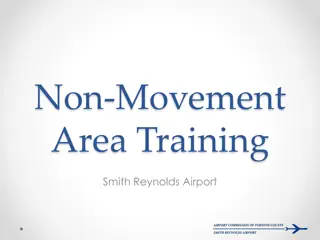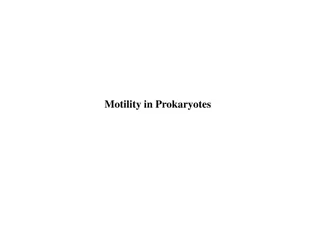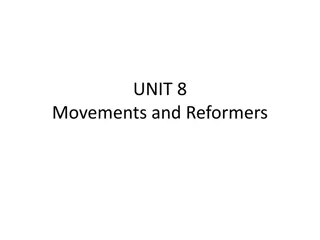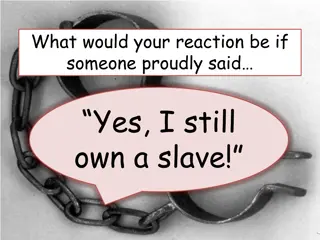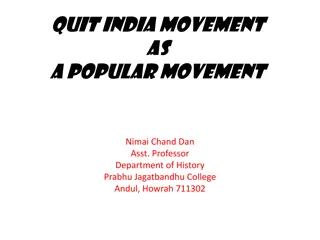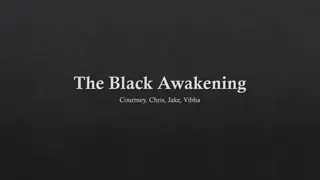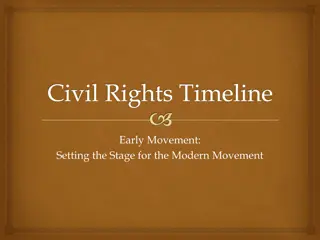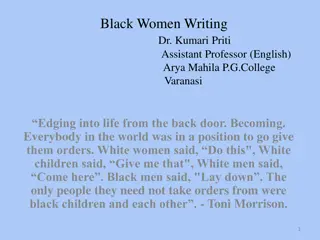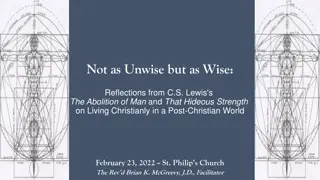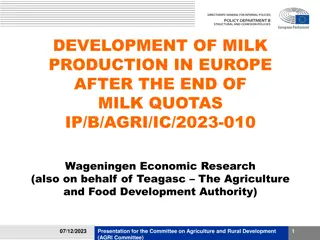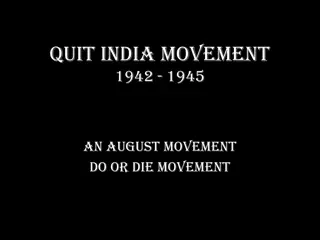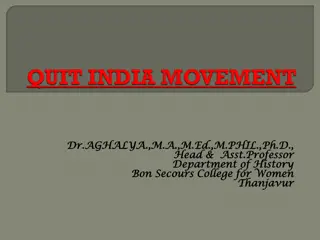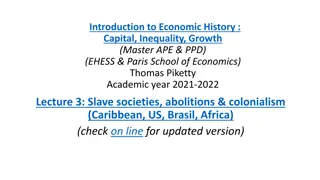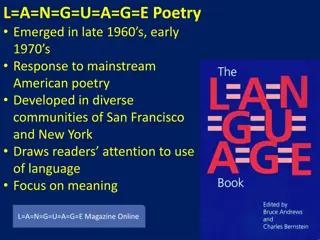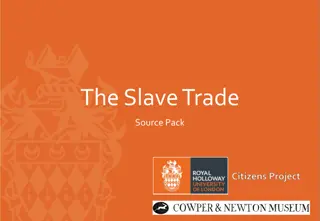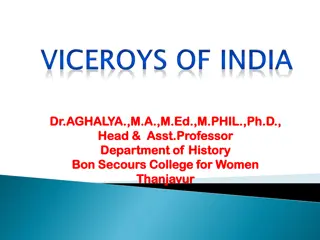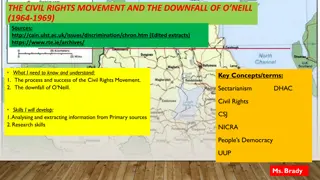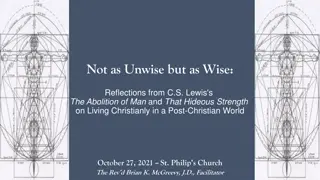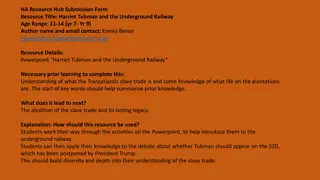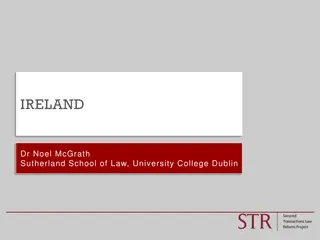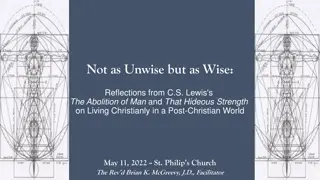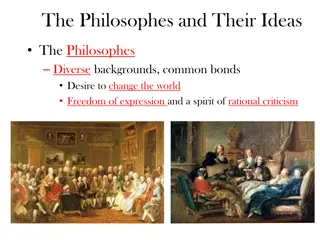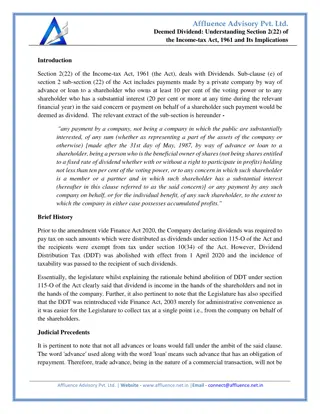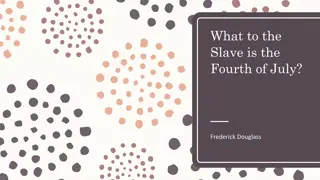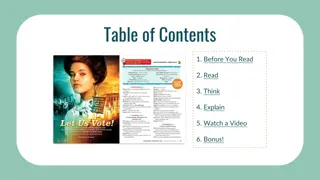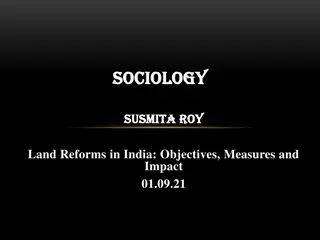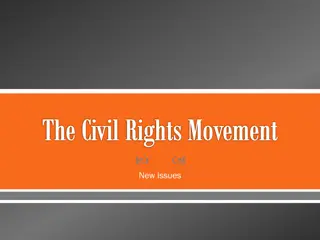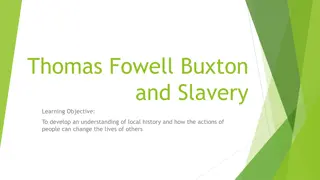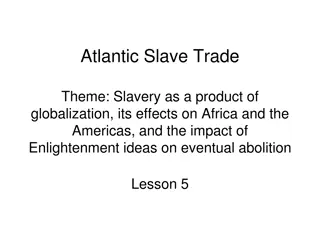Understanding Free Movement of Goods in the European Single Market
The European Single Market ensures the free movement of goods among its member states, prohibiting customs duties and equivalent taxes. The establishment of a customs union and harmonization of regulations play crucial roles. Despite the abolition of customs duties by 1968, further objectives like e
3 views • 16 slides
Establishing Safety Standards in Non-Movement Areas at Smith Reynolds Airport
This guide outlines the purpose, definitions, rules, and safety measures for operating vehicles in non-movement areas at Smith Reynolds Airport. It emphasizes standardized ground movement practices to ensure the safety of airport patrons, reduce the risk of injury, and maintain a high level of safet
1 views • 12 slides
Exploring Motility in Prokaryotes: Flagellar, Spirochaetial, and Gliding Movements
Delve into the fascinating world of bacterial motility through three types of movements in prokaryotes: flagellar movement driven by rotating flagella, spirochaetial movement with flexible axial fibrils, and gliding movement observed in certain bacteria on solid surfaces. Additionally, discover how
1 views • 14 slides
Understanding Socialism: A Comprehensive Overview
Socialism is a political and economic ideology that advocates for collective or state ownership of production, distribution, and exchange. It emerged in the early 19th century as a response to industrial capitalism, aiming for a more egalitarian society that prioritizes collective well-being. Social
0 views • 9 slides
Khilafat Movement in India: A Historical Perspective
The Khilafat Movement was a significant event in Indian political history, triggered by the British not fulfilling promises made to protect Turkey during World War I. The movement aimed to safeguard Turkey's holy places, restore its territories, and revive the Ottoman Empire. Despite efforts, includ
0 views • 30 slides
Jeremy Bentham and Utilitarianism: A Vision for Social Reform
Jeremy Bentham, a prominent philosopher of the 18th and 19th centuries, advocated for utilitarianism, which states that the greatest happiness of the greatest number should be the measure of right and wrong. He proposed the concept of the Panopticon as a new mode of obtaining power over individuals.
2 views • 13 slides
The Journey to Abolishing Slavery: Understanding William Wilberforce & the Movement
Discover the historical context of slavery, the pivotal role of William Wilberforce, and the reasons behind Britain's decision to abolish the slave trade in 1807. Explore key events, debates, and societal shifts that led to the abolition movement, shedding light on the complexities and motivations i
0 views • 9 slides
Key Stage 2 SATs Changes and Expectations 2018/19 Overview
Changes in Key Stage 2 SATs including the introduction of a new national curriculum framework, abolition of old national curriculum levels, and transition to scaled scores. Parents can expect their child’s test results to be reported in scaled scores, with 100 representing the national standard. T
1 views • 10 slides
Overview of Quit India Movement and its Phases
The Quit India Movement was a significant event in India's struggle for independence, marked by various factors leading to its emergence, including the demise of the Civil Disobedience Movement and the rise of nationalist sentiments. The movement escalated in response to the outbreak of World War II
1 views • 9 slides
The Black Awakening: Challenges and Triumphs in African American Civil Rights Movement
In the early 20th century, influential leaders like Booker T. Washington and W.E.B. Du Bois led the fight for political and civil equality for African Americans. Despite facing obstacles such as segregation and disenfranchisement, groups like the Niagara Movement and NAACP emerged to promote racial
0 views • 7 slides
Early Civil Rights Movement: Abolition, Legislation, and Freedom
Abolitionist groups form to fight against slavery in 1775, leading to the establishment of the Pennsylvania Society for Promoting the Abolition of Slavery. Legislation such as the Slave Trade Act of 1794 and the outlawing of slavery by different states played a crucial role in the early civil rights
0 views • 58 slides
Evolution of School Uniforms: A Comparison Across Countries
The emergence, history, and current status of school uniforms in Russia, America, the USSR, and Britain are explored. From the abolition of mandatory uniforms in Russian schools to the diverse rules for attire in American institutions, the evolution of school uniforms reflects societal norms and edu
0 views • 10 slides
Struggles of Black Women Against Racism and Oppression in America
The institutionalization of black slavery in America created a deep divide between whites and blacks. Racism ingrained in American history perpetuated the belief of black inferiority. Despite racial discrimination, black communities formed a strong identity post-abolition. Black women faced intense
0 views • 18 slides
Living Christianly in a Post-Christian World: Wise Reflections
Reflections inspired by C.S. Lewis's "The Abolition of Man" and "That Hideous Strength" for navigating the challenges of living out a Christian faith in a world that drifts from traditional values. Delve into key themes, plot summaries of the Ransom Trilogy, and methods to engage with the texts. Exp
0 views • 19 slides
Development of Milk Production in Europe Post-Quota Abolition
The presentation evaluates challenges and opportunities for the EU dairy sector following the abolition of milk quotas in Europe. It reviews policy developments, context, structure, and functioning of the dairy sector. With insights from official data sources and consultation with key industry playe
0 views • 14 slides
The Quit India Movement 1942-1945: An August Movement
The Quit India Movement, also known as the August Movement or Do or Die Movement, was a mass protest on nonviolent lines in India from 1942 to 1945. Initiated by the Indian National Congress, it called for an immediate end to British rule in India. Led by leaders like Mahatma Gandhi, the movement ai
0 views • 16 slides
The Quit India Movement: A Pivotal Moment in India's Independence Struggle
The Quit India Movement, also known as the India August Movement, was a key event in India's fight for independence led by Mahatma Gandhi in 1942. This movement urged the British to grant India independence through peaceful non-violent protests. It called for an immediate end to British rule, the fo
0 views • 15 slides
Evolution of Public Education in the United States
The evolution of public education in the United States dates back to 1647 when Massachusetts Bay Colony decreed elementary and Latin schools. From Thomas Jefferson's two-track system to the abolition of segregation in Brown v. Board of Education in 1954, the journey has been marked by milestones lik
0 views • 13 slides
Slave Societies, Abolitions, and Colonialism: Economic History Overview
Explore the impact of slavery, abolition movements, and colonialism on economic structures in societies such as Britain, France, the USA, Brazil, Africa, and the Caribbean. Delve into the nuances of slave societies, the abolition process, extreme inequality, colonial finances, and decolonization in
0 views • 43 slides
Exploring L=A=N=G=U=A=G=E Poetry Movement of the Late 1960s and 1970s
The L=A=N=G=U=A=G=E poetry movement emerged in the late 1960s and early 1970s as a response to mainstream American poetry, focusing on diverse communities in San Francisco and New York. This avant-garde movement emphasized the use of language, drawing readers' attention to the nuances of meaning. No
0 views • 6 slides
The Slave Trade Source Pack and Key Information
Explore the history of the slave trade, key terminology, primary sources, and influential figures like John Newton, William Wilberforce, Mary Prince, and Olaudah Equiano. Learn about the Triangular Trade, Middle Passage, and the impact of the Industrial Revolution. Discover how abolition was achieve
0 views • 34 slides
Life and Achievements of Dr. Aghalya - A Pioneer in Indian History
Dr. Aghalya, a distinguished scholar and educator, played a significant role in shaping Indian history. As a Head and Assistant Professor in the Department of History at Bon Secours College for Women in Thanjavur, his contributions were profound. He was instrumental in several key reforms and initia
0 views • 19 slides
The Civil Rights Movement and Terence O'Neill's Demise (1964-1969)
The Civil Rights Movement in Northern Ireland, spearheaded by organizations like the Campaign for Social Justice (CSJ) and the Northern Ireland Civil Rights Association (NICRA), aimed to address widespread discrimination against Catholics. The movement advocated for electoral reform, an end to housi
0 views • 10 slides
Veganmodernism: The Future of Meat Abolition and Technological Disruption
Explore the vision of Veganmodernism for meat abolition, the shifting technology landscape, the current and future costs and impacts of animal products, and the projected peak in global meat production. Delve into a future where modern food products outshine animal-derived foods both in quality and
0 views • 26 slides
The Assisted Decision-Making (Capacity) Act 2015 in the Criminal Justice Context
The Assisted Decision-Making (Capacity) Act 2015 introduces key reforms such as the abolition of wards of court system for adults, a statutory functional test of capacity, new guiding principles, a three-tier framework for support, and tools for advance planning. It emphasizes functional assessment
0 views • 17 slides
Living Wisely in a Post-Christian World: Insights from C.S. Lewis
Dive into the profound teachings of C.S. Lewis as we explore reflections from "The Abolition of Man" and "That Hideous Strength." Discover the essence of living Christianly in a post-Christian era through meaningful discussions and practical applications rooted in wisdom and hope.
0 views • 19 slides
Harriet Tubman and the Underground Railroad Presentation
Explore Harriet Tubman's courageous efforts on the Underground Railroad through an interactive PowerPoint, fostering understanding of slavery, abolition, and Tubman's legacy. Engage students in discussions about Tubman's impact on U.S. history and her potential appearance on the $20 bill.
0 views • 11 slides
History of Child Welfare in East-Central Europe: Transformations and Challenges
Exploring the evolution of child welfare in East-Central Europe with a focus on the history of the SSR, this research delves into the abolition of foster care, restructuring of childcare institutions, healthcare for infants, and the complexities of state intervention in family matters during the mid
0 views • 7 slides
Reform Process in Ireland: Company Law Changes
Explore the reform process in Ireland regarding the Company Charge Register, registration system, certificates, priorities, and negative pledge clauses. Changes include the presumption of registrability for mortgages, criminal sanctions abolition, and modifications in registration procedures.
0 views • 7 slides
Living Christianly in a Post-Christian World: Reflections on C.S. Lewis's Works
Reflections on living out Christian values in a post-Christian world through the teachings found in C.S. Lewis's "The Abolition of Man" and "That Hideous Strength." Explore themes of light versus darkness, wisdom, and the importance of discerning the will of the Lord. Dive into the Ransom Trilogy an
0 views • 24 slides
Enlightenment Philosophes and Their Revolutionary Ideas
Enlightenment philosophes such as Montesquieu, Condorcet, Voltaire, John Locke, Diderot, and Cesare Beccaria came from diverse backgrounds but shared a common desire to change the world. They advocated for freedom of expression, rational criticism, religious tolerance, separation of powers, educatio
0 views • 16 slides
Deemed Dividend-Understanding Section 2(22) of the Income-tax Act, 1961
Section 2(22)(e) of the Income-tax Act addresses Deemed Dividend, covering advances or loans given by private companies to shareholders with substantial interest. After the abolition of Dividend Distribution Tax (DDT) in 2020, the tax liability shift
0 views • 3 slides
Frederick Douglass: What to the Slave is the Fourth of July?
Frederick Douglass delivers a poignant speech on the Fourth of July, exposing the hypocrisy of America celebrating freedom while denying it to slaves. He challenges the nation to confront the injustices of slavery and calls for true equality and justice. Despite the grim reality he presents, Douglas
0 views • 4 slides
Exploring Suffrage Movement Through Scenes and Questions
This comprehensive content presents a structured exploration of the suffrage movement through questions, images, and scenes from a play set in the early 1900s. Readers are encouraged to ponder reasons behind voting, attitudes towards the movement, and the impact of protest actions. The content delve
0 views • 13 slides
Reconstruction Period after the Civil War: Plans and Challenges
The Reconstruction period after the Civil War in the United States saw various plans proposed by President Abraham Lincoln, Republicans in Congress, President Andrew Johnson, and Radical Republicans. These plans aimed to rebuild the country and bring the Southern states back into the Union, addressi
0 views • 7 slides
Land Reforms in India: Objectives, Measures, and Impact
Land reform in India refers to institutional measures aimed at changing the ownership, tenancy, and management of land to improve agro-economic institutions. The objectives include achieving an egalitarian agrarian structure, eliminating exploitation, improving conditions for rural poor, and increas
0 views • 16 slides
Challenges and Evolution of the Civil Rights Movement
The Civil Rights Movement faced new challenges in the 1960s, with urban African Americans struggling with racism, economic disparities, and social issues. The Kerner Commission highlighted systemic racism, while incidents like the Watts Riot underscored ongoing tensions. The movement also saw a shif
0 views • 11 slides
Thomas Fowell Buxton: A Local Hero's Impact on the Abolition of Slavery
Discover the inspiring story of Thomas Fowell Buxton, a key figure in the abolition of slavery in the British Empire. Explore his life, achievements, and lasting legacy through monuments like Belfield House and the Buxton Monument on Bincleaves Green in Weymouth.
0 views • 10 slides
The Atlantic Slave Trade: Impact and Abolition
Slavery in Africa, fueled by Bantu migrations, led to a system where slaves had no rights but were crucial for wealth and power. The Islamic and European slave trades further exploited Africans, with the latter expanding significantly with the arrival of Europeans in the Americas. Portuguese slave t
0 views • 50 slides
Fast Noncontiguous GPU Data Movement in Hybrid MPI+GPU Environments
This research focuses on enabling efficient and fast noncontiguous data movement between GPUs in hybrid MPI+GPU environments. The study explores techniques such as MPI-derived data types to facilitate noncontiguous message passing and improve communication performance in GPU-accelerated systems. By
0 views • 18 slides

